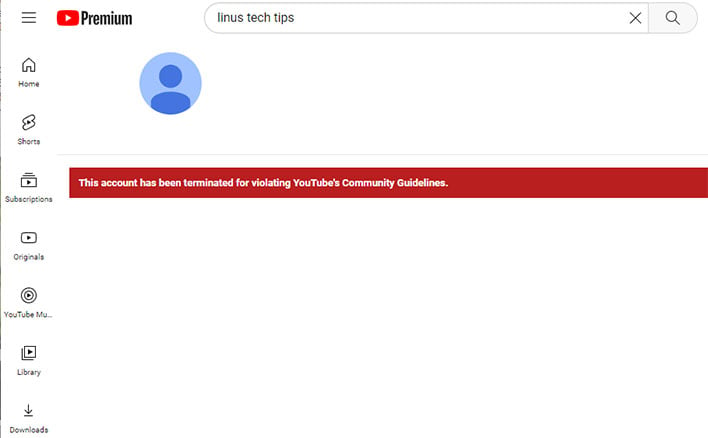Linus Tech Tips YouTube Channel Banned After Being Hijacked By Crypto Scammers

The hackers were able to start two live streams, using keywords such as AI, ChatGPT, Bitcoin, and the fake crypto giveaway to promote them. The Linus Media Group does appear to have been able to regain control of the channel, however, the channel itself is still offline line at the time of this writing. Linus acknowledged that he was aware of the hack on Twitter around 8:30am EST this morning.

The hackers also attempted to falsely use the image of Elon Musk and his Tesla brand to promote the fake giveaway, stating the tech mogul was taking part in the "Biggest Giveaway Crypto of $100,000,000."
Those responsible were able to change the channel's handle from @LinusTechTips to @teslaliveonline1. During the time that Linus Media Group was attempting to regain control, the channel name was changed to @temporaryhandle, then to @LinusTechTemp, and is currently back to the original handle of @LinusTechTips. Although if users try and navigate to the channel, they are currently being met with a 401 error.
Unfortunately, Linus is not the only YouTube channel to report being hacked. ThioJoe, Paul Hibbert, Techquickie, and TechLinked have also reported falling victim. ThioJoe explained that these attacks are typically done through either a trojan horse, or a malicious Google ads for software download.
Hibbert added, "If a hacker is actually logged in as you are using your cookies - which is what they did to me - they can use your existing login to go in and change all of your two-factor authentication without first providing a two-factor authentication key."
This is a good time to remind everyone to be mindful of a scam like the one used on the Linus Tech Tips channel while hacked. If something appears to be too good to be true, it more than likely is.


